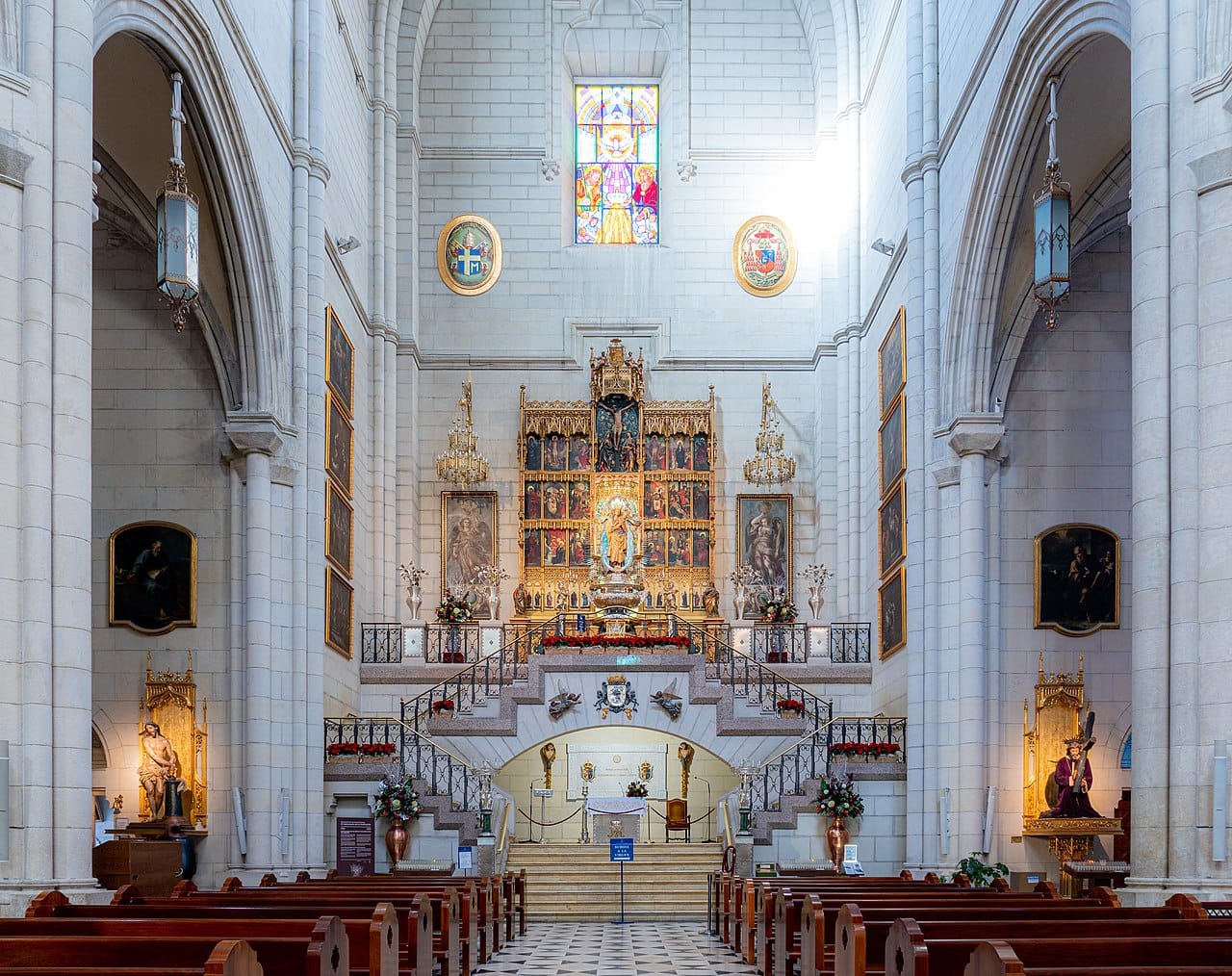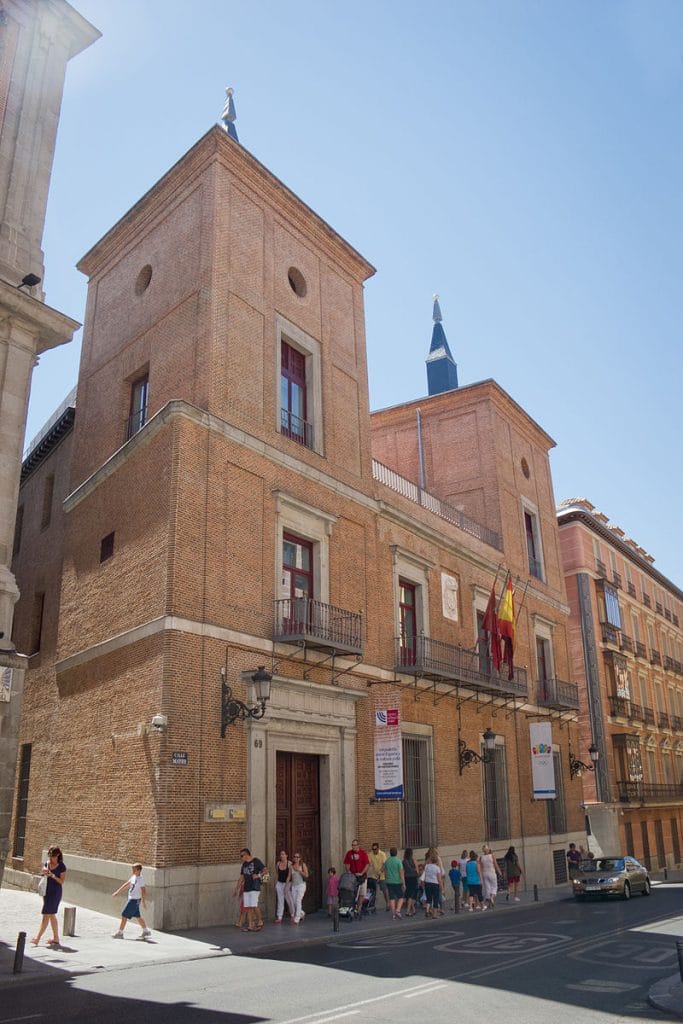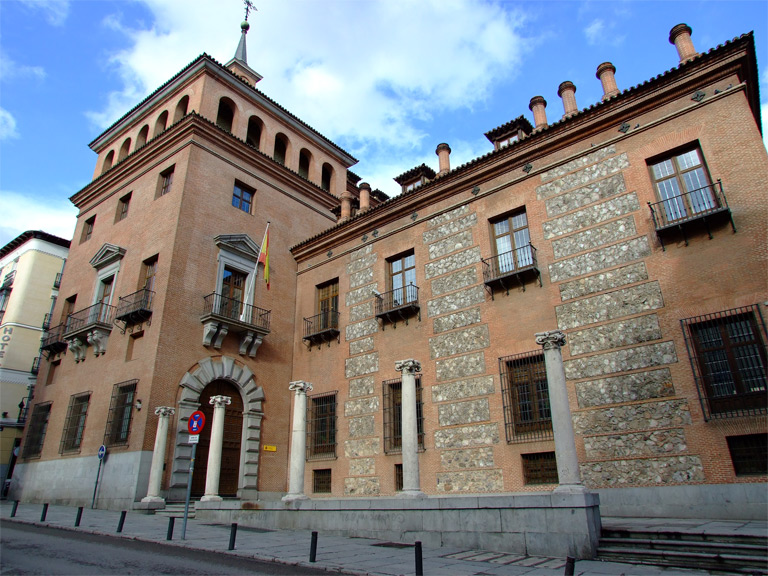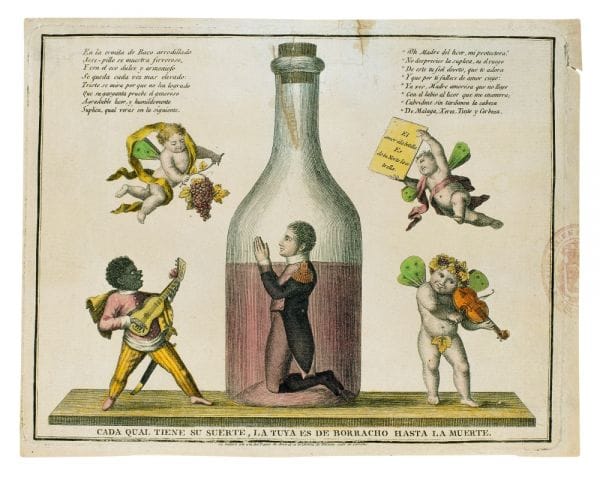An inconvenient truth
For many years, historians did not want to accept the fact that Muslims created the settlement of Madrid. Instead, the story went that the Romans founded Spain’s capital city. But the archeological evidence points in another direction. While Madrid was near an old Roman road that went from Merida to Zaragoza via Alcala de Henares, apart from a Roman villa in Carabanchel, there is no archeological evidence of any other human settlement in the area until the late 9th century. Taking advantage of the Roman infrastructure, Muhammad I of Cordoba chose Madrid, or Mayrit (place of abundant waters in Arabic) to be part of a line of fortifications running down this old road.
This was an inconvenient truth for Alfonso VI of León and Castile, who invaded the city in 1083, as part of his “reconquest” of Christian territories. To legitimately take a settlement, he had to prove that the area had already been inhabited by Christians. As this simply wasn’t the case, he cooked up a story about finding a statue of the Virgin Mary in the city’s walls. A story that remains accepted by many Christians who come to the city’s cathedral to venerate what is most certainly not even the original false statue.

Biased language
Now, the term reconquest itself is coming under scrutiny as historians try to unpick centuries of biased thinking. Back in 2014, the Royal Spanish Academy changed the dictionary definition from “the recovery of Spanish territory” to “the recovery of Hispanic territory invaded by the Muslims in 711”. Obviously, the land couldn’t have been recovered from a country that didn’t yet exist! Now, the new definition is also being challenged. Medieval historians Ana Isabel Carrasco Manchado and Alejandro García Sanjuán are asking the academy to ditch this wording too. They are not alone. Some one-hundred historians from various countries have signed a petition that states that the anachronistic language is biased and “is nationalistic propaganda that doesn’t conform to historical fact”.
Their concerns stem from the fact that it has been widely used by the far-right to imply that eight centuries of Islamic rule was some kind of aberration that needed to be corrected. This is prejudicial thinking that fails to acknowledge the great strides made during this period in mathematics, hydro-engineering, agriculture, literature and philosophy. A pernicious idea that is embraced by politicians to this day. Two years ago, for instance, Ortega Smith, the secretary-general of the far-right party VOX and a member of the city council of Madrid made a worrying statement that the reconquest was not yet over.

Imperialistic thinking
Other ring-wing politicians appear to be embracing similar rhetoric. Last year, for instance, Isabel Díaz Ayuso the president of Madrid, took issue with the pope’s apology for the church’s “painful errors” in Latin America. In her version of events, Spanish conquistadors brought “civilization and freedom” to the region. No mention of the smallpox epidemic that nearly wiped out the indigenous population!
Personally, I’m behind the movement to remove this definition from Spanish dictionaries. This relic of a bygone era is emboldening an extreme right-wing movement that is sadly gaining traction in a Spain buffeted by economic hardship. The idea that Christian societies are inherently superior to others is incredibly narrow-minded and utterly offensive to other cultures. When resources become scarce, it’s frighteningly easy to justify excluding “outsiders” by inventing stories that place the narrator in a heroic battle against a barbaric enemy.
Are you interested in finding out more about Muslim Madrid? Get in touch to book a unique walking tour with me, the author of The Making of Madrid.






Pingback: Toledo's Jewish History - The Making of Madrid
Pingback: The Bear and the Strawberry Tree - The Making of Madrid
Pingback: Cervantes: The Ultimate Late Bloomer - The Making of Madrid
Pingback: Conquerors and Quesos: Tourism in Trujillo - Confused Heap of Facts